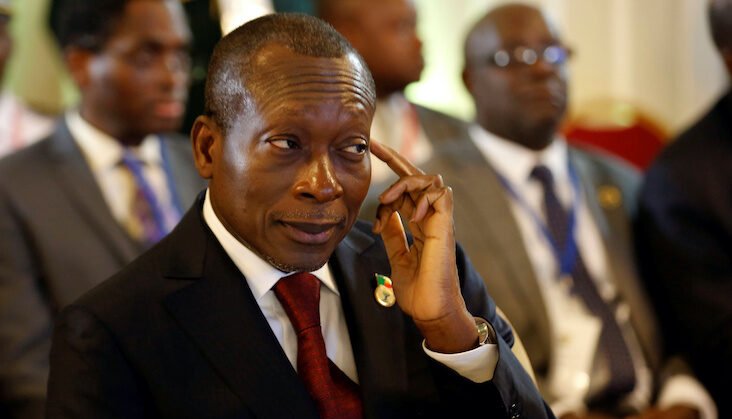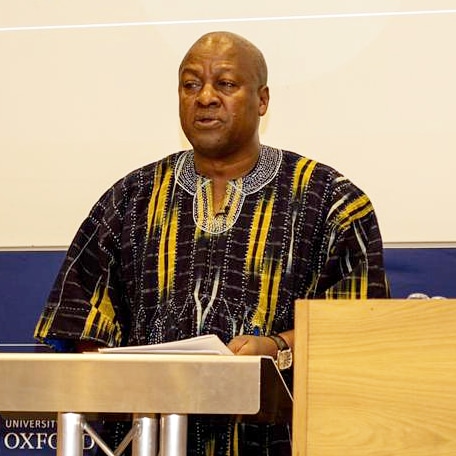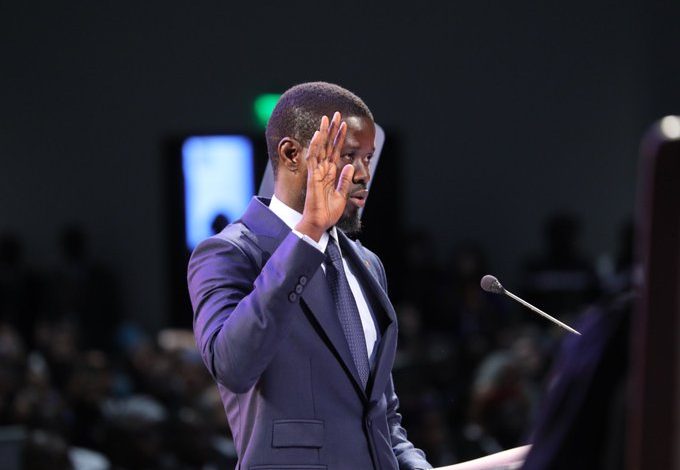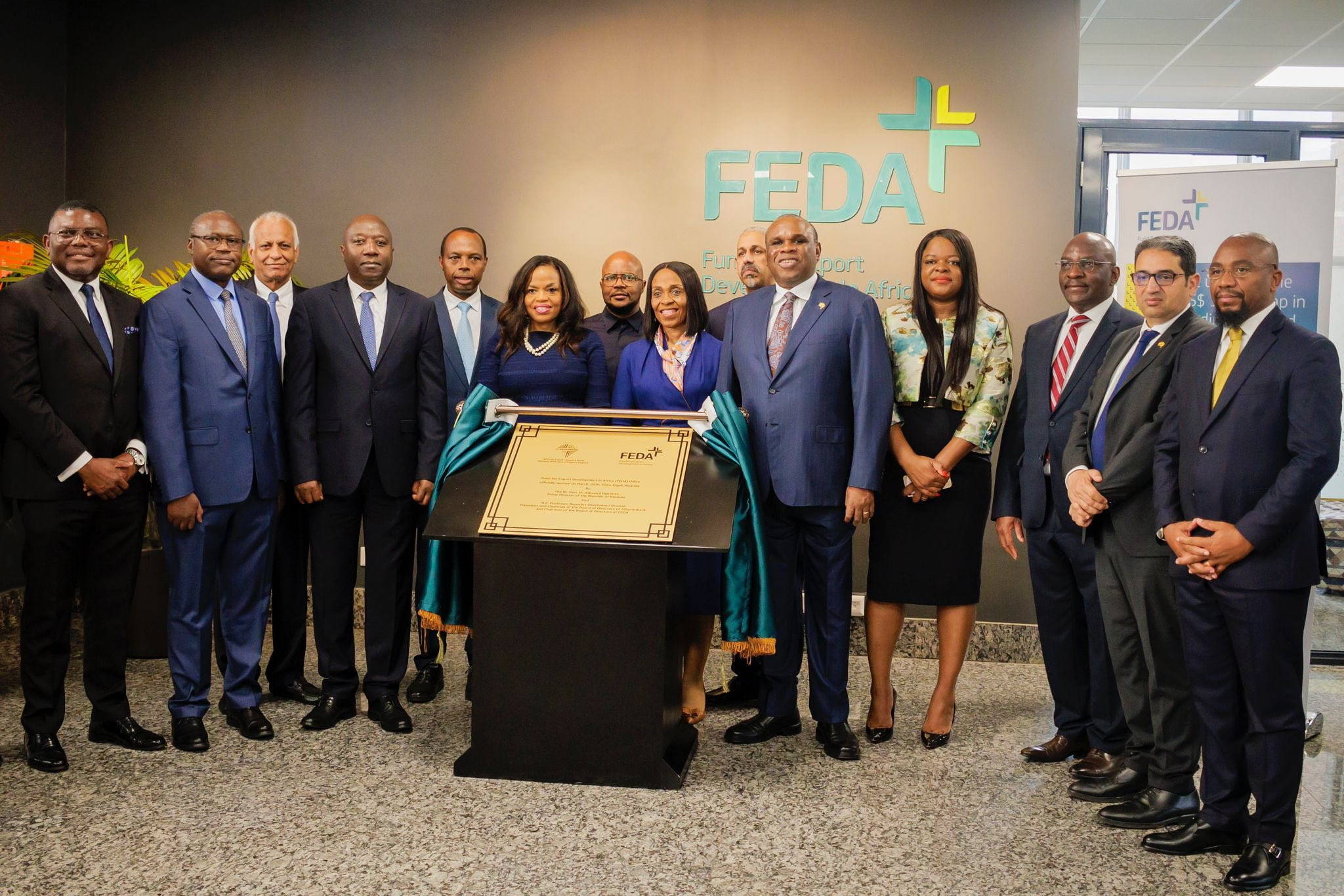Reports reaching The Boss at the moment say that situations are getting out of hand in the Republic of Benin as incumbent President, Patrice Talon seeks to be reelected in the forthcoming April 11, 2021 election.
A source, who sought anonymity, told The Boss that sporadic gunshots rent the air as people were seen running helter-skelter and scampering for safety, adding that the lifeless body of a middle age man, was seen on the street with bullet wounds.
According to a Yahoo report, “Protests broke out in Benin Tuesday in another day of tensions as opposition demonstrators burned property of pro-government deputies and blockaded roads, days before President Patrice Talon faces an election.

“Tensions have erupted in several towns around the West African country since Monday night, local residents and witnesses said, in the lead-up to Sunday’s ballot in which Talon is strongly favoured to win a second term.
“Benin has long been seen as a vibrant multi-party democracy but critics say under Talon the country has veered into authoritarianism and opponents have been sidelined by a crackdown.
“In Save in the central north region, a stronghold of former President Boni Yayi, angry youths ransacked a toll station at the entrance from the city, local residents said.
“‘A dozen young people dismantled the toll facilities,” said Simboti Tcheitcha Victorine, a motorist who retreated to a nearby town. “Others chanted slogans hostile to President Patrice Talon.”

“Motorcycles and several vehicles were also burned in the home of a pro-Talon lawmaker, local sources said.
“Opposition leaders say the April 11 election is already rigged in favour of Talon, a cotton magnate first elected in 2016.
“Towards the north, the Save-Tchaourou route was still blocked Tuesday afternoon by tree trunks and burnt tires, witnesses reported.
“In Tchaourou, the hometown of Yayi, young demonstrators attempted to attack a military vehicle, but a military source told AFP that the driver and the vehicle suffered no damage.”
– Opposition figures exiled –
“Talon is running against two little-known rivals, Alassane Soumanou and Corentin Kohoue.
“Government officials have dismissed opposition calls to rally in the streets and said the election will go ahead without any problems.
“‘We have demonstrated that we are a democratic state,” government spokesman Alain Orounla said.
“‘In accordance with democratic rules, we tolerate these little scuffles that we are not going to allow to continue because Beninese must go and vote in peace.”
“Benin’s main opposition figures either live in exile or have seen their candidacies rejected, due to political reforms opposed by a large part of the political class as unfair.
“Several opposition leaders have taken to social media to call for demonstrations.
“Former finance minister Komi Koutche called from exile for people to take to the streets to “mark the end of the Republican mandate handed over to Talon”.
“On Monday evening, groups of several dozen and at times even a few hundred demonstrators gathered in multiple towns in the centre and north of the country, known to be opposition strongholds, where Talon campaign vehicles were ransacked.
“In the economic capital Cotonou, marks of the previous night’s protests were still visible Tuesday at the city’s Red Star Square where the tarmac was charred from burnt tyres.
“In Parakou, in the north, another stronghold of Yayi, Talon’s campaign headquarters were vandalised, along with the premises of a private radio station.
“On Tuesday morning in the capital Porto Novo, dozens of supporters of Sebastien Ajavon, who came third in the last presidential election and who is also living in exile, “invited the army to take power” during a demonstration.
“On Monday, a senior Benin judge fled the country, condemning political pressure to convict and detain an opposition candidate in early March.
“At the time of his election in 2016, Talon had said he wanted to serve a single term. But he changed his position, announcing his candidacy in mid-January.”
The Benin election is expected to hold on Sunday, April 11, 2021. However, opposition parties are not convinced that the polls will be free and fair. They believe the election is already rigged in favour of the incumbent president, Talon.
Culled from Yahoo!News

 News6 years ago
News6 years ago
 Featured6 years ago
Featured6 years ago
 Boss Picks6 years ago
Boss Picks6 years ago
 Headline6 years ago
Headline6 years ago
 Headline6 years ago
Headline6 years ago
 Headline5 years ago
Headline5 years ago
 Headline6 years ago
Headline6 years ago
 Headline6 years ago
Headline6 years ago















